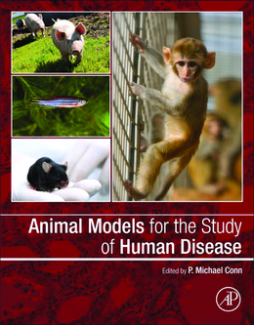
Additional Information
Book Details
Abstract
Animal Models for the Study of Human Disease identifies important animal models and assesses the advantages and disadvantages of each model for the study of human disease. The first section addresses how to locate resources, animal alternatives, animal ethics and related issues, much needed information for researchers across the biological sciences and biomedicine.The next sections of the work offers models for disease-oriented topics, including cardiac and pulmonary diseases, aging, infectious diseases, obesity, diabetes, neurological diseases, joint diseases, visual disorders, cancer, hypertension, genetic diseases, and diseases of abuse.
- Organized by disease orientation for ease of searchability
- Provides information on locating resources, animal alternatives and animal ethics
- Covers a broad range of animal models used in research for human disease
"...addresses how to locate resources, animal alternatives, animal ethics and related issues, much needed information for researchers across the biological sciences and biomedicine."--Anticancer Research, February 2015
"…a very detailed textbook for researchers and laboratory animal veterinarians interested in getting an understanding of some of the animal models of human diseases. The authors have done a good job of reviewing the numerous animal models in various physiological systems."--Laboratory Animal Practitioner, June 2014
"Conn presents this compendium on animal models in biomedical research, beginning with a section on ethical justifications, resources, and methodology to optimize the scientific value obtained from animal experiments. After this discussion, the volume is organized by disease group…The book aims to present successful animal models with the greatest homology to human systems."--ProtoView.com, February 2014
"This comprehensive textbook identifies important animal models and assesses the advantages and disadvantages of each model for the study of human disease…Organized by disease orientation for ease of searchability…Provides information on locating resources, animal alternatives and animal ethics."--Anticancer Research, 34, 2014
"…overall, the content (figures, tables and descriptions of the animal models and their significance) is excellent and should be considered a useful resource…Any laboratory animal research program, particularly those with an interest in working with multiple species of animal models, would benefit from having this book in the library."--Lab Animal, February 2014
